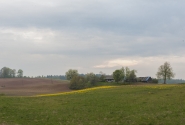
On Thursday, 23 March, the Saeima adopted in the final reading amendments to the Law on Land Privatisation in Rural Areas, thus updating the rules for purchasing agricultural land. The amendments were necessary due to European Commission’s (EC) objections to the current agricultural land market regulation. The amendments will simplify the conditions for purchasing land for local farmers, while disallowing foreigners who are not permanently residing in Latvia to purchase agricultural land.
The amendments stipulate that both natural and legal persons wishing to buy land in Latvia will have to possess knowledge of Latvian at level A1 at the least. Furthermore, they have to be able to present in the official language their plan for the future use of the land for agricultural purposes and answer questions from the relevant municipal committee.
According to the newly adopted amendments, citizens of other European Union or European Economic Area member states, or the Swiss Confederation, who are not permanent residents of Latvia, will not be allowed to purchase land here. The same conditions shall apply to foreigners who are business owners. Persons who have not lived in Latvia and have not obtained an EU citizen’s registration card in Latvia will not be allowed to purchase land.
In order to eliminate possible fictitious purchase–sale transactions, the amendments stipulate that, until the end of this year, land deals concluded before 31 October 2014 will be entered in the Land Register only upon authorisation from the relevant municipal committee.
To facilitate purchasing of land for local farmers, the pre-emption rights’ regulation will be amended. If an owner wants to sell their land, the right of first refusal will be granted to the renters of the land and the administrator of the Land Fund of Latvia. Currently the law stipulates that if one joint owner wishes to sell their share of a land property, the right of first refusal is granted to the other joint owners of that property.
As of 2018, local governments will be able to lease out vacant agricultural land with purchase rights. Land may be leased for a maximum of 12 years, with the annual lease payment set at 4.5% of the cadastre value of the land. The condition for such a lease for natural persons will be that the management of the said land shall have to commence within one year of signing the lease. It will be possible to buy out the land no earlier than the fourth year of the lease.
To avoid thousands of hectares of agricultural land being concentrated in the hands of one or several closely linked individuals, a new restriction has also been introduced in the rules for purchasing land: legally related persons will be able to own a total of no more than 4000 hectares of agricultural land. Currently, a single natural or legal person may purchase up to 2000 hectares. Based on development priorities, local governments will be allowed to set further restrictions.
The amendments also revise the supervision of implementing the rules for purchasing land. Henceforth, local governments shall have to verify written affidavits about the use of land for agricultural purposes.
The amendments will revoke the previous requirement that land may be purchased only by persons who have received EU direct payments within the past three years, as well as the requirement that farms or businesses purchasing land must have received at least a third of their revenue over the past three years from agricultural production. Furthermore, legal persons will no longer have to prove that at least one owner or permanent employee has obtained a professional education in a relevant area. The EC has started an infringement procedure against Latvia because of these restrictions, arguing that any restrictions must be proportionate and must not discriminate citizens of other EU member states.
“I am glad that the parliament supported several proposals that will protect Latvia’s farmland from speculative transactions. A new condition in the law is that anyone wishing to purchase land will have to know the Latvian language. We have also reinforced in the law the authority of the Land Fund. The state, through the Land Fund, shall henceforth have the right of first refusal in transactions with agricultural land. The Fund has sufficient financing for this purpose to ensure that land is not bought by foreign dealers and intermediaries. There is still work ahead of us, as the regulation needs to be further improved to ensure that it provides maximum benefits to the rural areas of Latvia. The next big step will be further restriction of speculation in land deals to make sure that agricultural land is not subject to speculative transactions by legal entities,” explains Romāns Naudiņš, Chair of the Economic, Agricultural, Environmental and Regional Policy Committee, which was responsible for the drafting of the amendments.
The amendments will come into effect on the day following their proclamation.
Saeima Press Service







